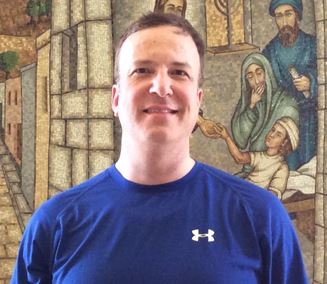 “Whoever welcomes one such child in my name welcomes me, and whoever welcomes me welcomes not me but the one who sent me.” Mark 9:37
“Whoever welcomes one such child in my name welcomes me, and whoever welcomes me welcomes not me but the one who sent me.” Mark 9:37
In this Sunday’s Gospel, the disciples of Jesus are caught arguing about which one of them will be the greatest among them. When Jesus learned what they were discussing, he responded by saying, “If anyone would be first, he must be last of all and servant of all.” “It is not by seeking to be first,” he said, “It is by a willingness to be last. It is not by getting people to serve you; it is by becoming a servant of all.” The disciples were quickly caught and embarrassed by their personal struggle for power. Jesus further dumbfounds his larger audience by placing a small child in their midst as a model for true discipleship. Jesus reminds his followers that the care of every child, vulnerable adult, the homeless, shut-ins, refugees and migrants will not offer us personal power, prestige, or wealth in return. In fact, Jesus’ personal call to serve others will often be inconvenient, wearisome, sacrificial, but potentially, life changing.
In first-century Palestine, a small child would have been seen as a non-entity. Children had no social status or legal rights. As “non-persons,” children would have been completely dependent on others for their daily survival. Anyone who cared for or showed kindness to a child could expect no personal gain in return. By embracing a child, Jesus displays his acceptance of the most vulnerable as worthy of deep kindness, respect and care. In a single gesture, Jesus summarizes the beauty and mystery of his message: those whom the world sees as insignificant are important in God’s eyes. To be Jesus’ follower means that we have to be willing to embrace those dismissed by the world. True greatness comes from serving others. This concept would have been as difficult for the early disciples to accept and live out as it is for us in today’s modern world. The care of children, vulnerable adults, the homeless, shut-ins, refugees and migrants doesn’t offer today’s Catholics any prestige, power, or wealth in return. However, Jesus makes it clear that this is the mission of the Church. Jesus’ calling to a life of discipleship means that we must all be willing to place ourselves at the service of one another and this service potentially will be life changing.
The gospels consistently reveal that Jesus was overtly on the side of the poor, the excluded, the disenfranchised and the exploited. Jesus was on their side even when it meant damage to his reputation, earning potential, and any hope he had of moving up the ranks of religious or political power. The invitation for us as Catholics is to open our hearts and be willing to sacrifice our time, talent, gifts, and resources to create a space for those in our society who are dismissed as unimportant. This kind of radical service can be life changing. Jesus reminds us that the poor are not targets, percentages, or projects. They are real people, made in the image and likeness of God—people who, like us, need to experience the blessing of God. The blessings that have been poured out on each of us are what we have to offer to one another. This is what we share when we invest in the lives of the disadvantaged. Each person’s life has amazing value, unique meaning and a beautiful purpose. Jesus invites us to bring our true, authentic self to every situation. Authenticity creates higher levels of empowerment, creativity, and overall well-being, a great place to be when helping others.
To further understand Jesus’ example of a vulnerable child as a model for discipleship, Mark’s gospel frames the beginning and end with accounts of blind people who are given sight. This stark image of going from blindness to sight, however gradually, mirrors the disciple’s journey. They are blind to Jesus’ mission and identity, and then move towards insight, however gradually. Knowing and not knowing, understanding and not understanding are woven throughout the gospel of Mark. From this Sunday’s second reading: “Where jealousy and selfish ambition exist, there is disorder and every foul practice. But the wisdom from above is first of all pure, then peaceable, gentle, compliant, full of mercy and good fruits… and the fruit of righteousness is sown in peace for those who cultivate peace.” (James 3:16-18) Jesus embodies a willingness to serve in his Passion and Death and this theme forms the framework for this weekend.
Jesus challenges his followers to understand that material goods are not a be-all and end-all for anyone. We are to understand that we need enough to have a full human life, but we don’t need excess. Jesus teaches that God made the world for all and not just for a few, and so we need to find ways to share the goods of the earth and the goods of our world so everyone has a chance for a full human life. There’s so much that will change in our thinking and in our way of acting once we have a deep sense that we need God and that our very being depends upon God’s constant, infinite, unlimited, unconditional love for us. The relationships we develop with one another will potentially change our lives. May we be committed to living this value system, and begin to experience the fullness of joy, love, and peace that comes from our God.
Fr. Rich Jakubik

